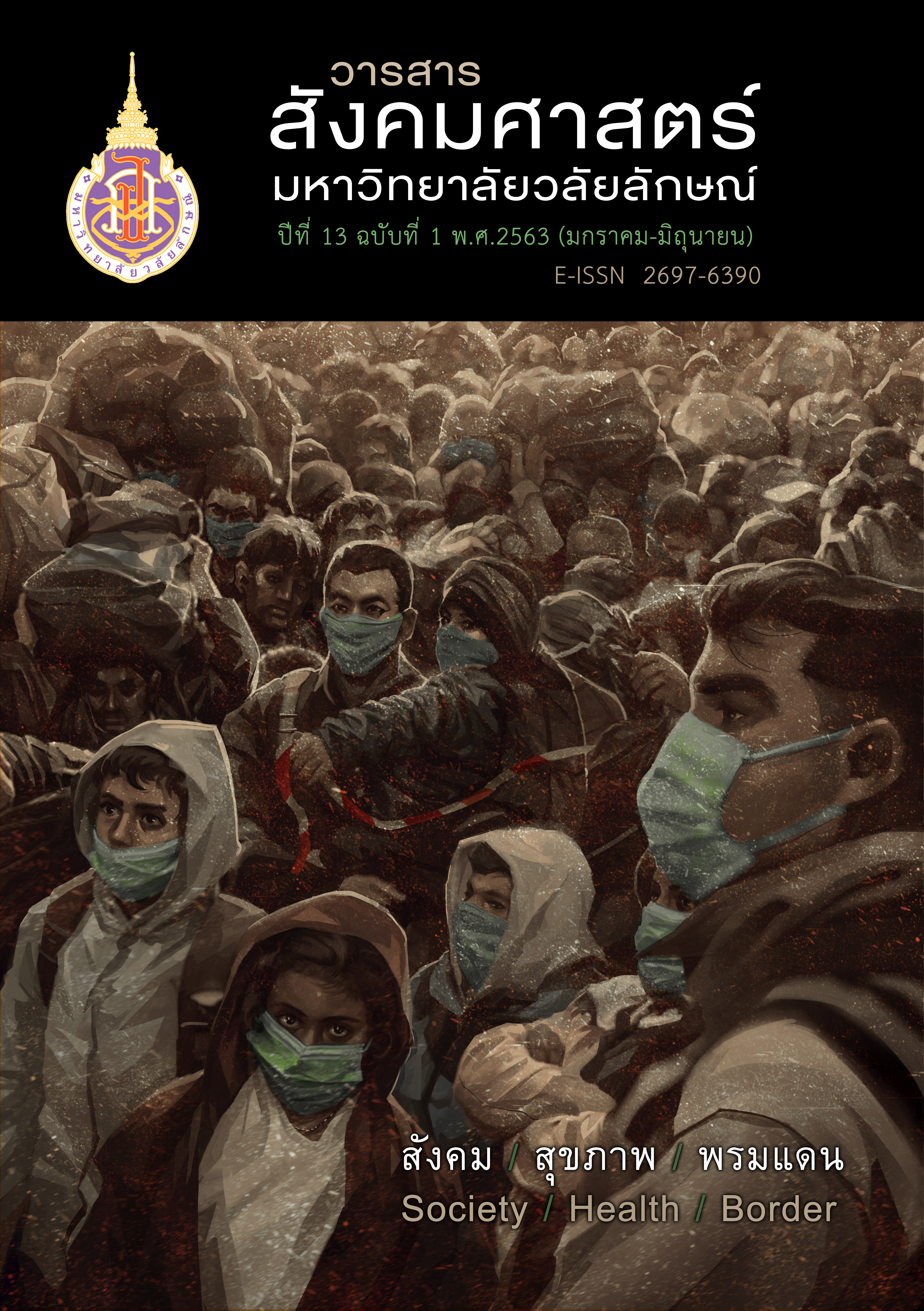A Fragile Society: Buddhist-Muslims Relations in Thailand in 2018-2019
Main Article Content
Abstract
This research project examines an ontology of Buddhist-Muslim relations in Thai society between 2018- and 2019. A focus group and in-depth interview were used to collect data from 4 regions of the country during July-December 2018. It explains why such relations turned more fragile, which areas are the most dangerous, and how the conflict is relevant to different types of area. It demonstrates that the tensions between Buddhists and Muslims in the society are seen as a challenge of the 2010s, which needs to be monitored systematically. Such relations had been socially constructed through interactions between the compatriots of different religions and ethnicities, and can change with time and location, from cooperation to confrontation and violence. In this decade, such relations, however, have changed in a negative way. Examples are a change of direction from vertical violence to the horizontal conflict in the deep south, active protests of Buddhists against Muslims in the North and Northeast, and the increased visibility of Muslim identity in the upper South and Central regions. Such shift of conflict’s direction has brought a more social complexity and requires a public policy that can prevent violent extremism.
Article Details
Copyright: CC BY-NC-ND 4.0
References
Anderson, B. (2006). Imagined Communities: Reflections on the Origin and Spread of Nationalism, Revised Edition (Revised edition). London New York: Verso.
Beyrer, C., & Kamarulzaman, A. (2017). Ethnic cleansing in Myanmar: The Rohingya crisis and human rights. The Lancet, 390(10102), P1570-P1573.
Eawsriwong, N. (2017). Nidhi Eawsriwong: The stranger of Muslims. Matichon Weekly. Retrieved from https://www.matichonweekly.com/column/article_57152
Jerryson, M. (2009). Appropriating a space for violence: State Buddhism in southern Thailand. Journal of Southeast Asian Studies, 40(1), 33-57.
Jerryson, M., & Juergensmeyer, M. (2010). Buddhist Warfare. New York: Oxford University Press.
Jerryson, M. K. (2012). Buddhist fury: Religion and violence in Southern Thailand. Oxford University Press.
Jitmoud, S. (1988). Ethnic Groups: Thai Muslims. Bangkok: Rujiraamporn Fund.
McCargo, D. (2009). Thai Buddhism, Thai Buddhists and the southern conflict. Journal of Southeast Asian Studies, 40(1), 1–10.
Najjamnong, T. (2016). Muslims in Ayutthaya Kingdom: Homeplace. Siamrath. Retrieved from https://siamrath.co.th/n/3704
Patani Forum. (2019). Handphone of Youths: Youths’ Uses of Handphones in Southearn Border. Patani Forum. Retrieved from https://www.facebook.com/PATANIFORUM/videos/393206221415648
Pathan, D., Tuansiri, E., & Koma, A. (2018). Understanding Anti-Muslim Sentiment in Thailand. Pattani: Patani Forum.
Premsrirat, S., Diphadung, S., Suwannaket, A., Choosri, I., Srichampa, S., Buasuang, A., & Thawornpat, M. (2004). Ethnolinguistic maps of Thailand. Bangkok, Thailand: Office of the National Culture Commission.
Putnam, R. D., Leonardi, R., & Nanetti, R. Y. (1994). Making democracy work: Civic traditions in modern Italy. Thailand: Princeton University Press.
Sangchai, A. (2017). SOGIE Rights and Thailand’s Southern Border Provinces/PATANI: The Case of Buku’s Gender and Sexuality Classroom. The Thammasat Journal of History, 4(1), 208-268.
Settamalinee, S., & Binlateh, W. (2014). Young Muslims and Modern World. Bangkok: Social Research Institute, Chulalongkorn University.
Suasaming, A. (2010). Response to Talatingtampong (1st part). Alisuasaming. Retrieved from http://alisuasaming.org/ main/?p=1042
Suphunchitwana, P. (2018). The unfamiliarity and the resistance against Mosques construction in Northern Areas of Thailand. Songklanakarin Journal of Social Sciences and Humanities, 24(2), 3-33.
Suppawannakul, K. (2017). Ekkarin Tuansiri: Islamophobia, We-ness, and Otherness. Prachachat. Retrieved from https://prachatai.com/journal/2017/09/73431
Suwachun, P. P. (2562). Preparing to submit to ’Prime Minister Her Highness as follows...- Pasika Pat Suwachun. Retrieved from https://www.facebook.com/suwachun/posts/2693465574026955
Tuansiri, E. (2015). Muslim intellectuals’ worldview and democracy. Songklanakarin Journal of Social Sciences and Humanities, 21(3), 87-124.
Tuansiri, E. (2017). It is not a gendered dialogue. Patani Forum. Retrieved from http://www.pataniforum.com/single.php?id=662
Tuansiri, E., & Koma, A. (2018). Democracy and Islam. Pattani: Patani Forum.
Yusuf, I. (2018). Three faces of the Rohingya crisis: Religious nationalism, Asian Islamophobia, and delegitimizing citizenship. Studia Islamika, 25(3), 503-542.


